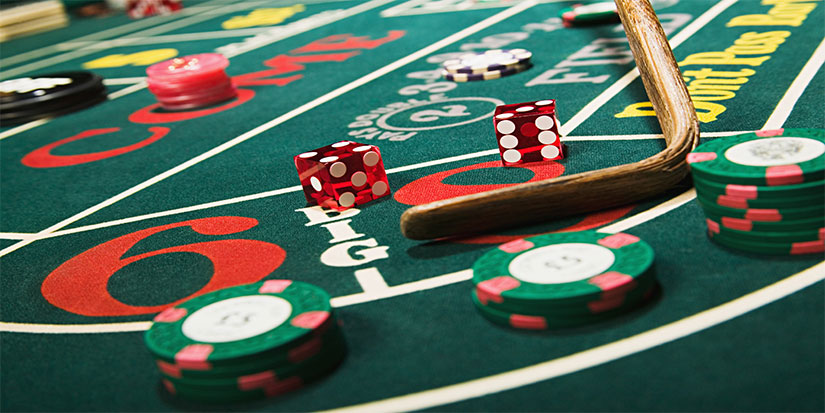Pass Or Don't Pass

I enjoy playing craps, even though I’m terrible at it. Typically, I like to play the Don’t Pass, which means you win when the rest of the table loses. I find this enjoyable. Pure schadenfreude. I’m picking up stacks of chips while everyone else groans and walks away from the table. One of the most satisfying things you can do in a casino.
I’m just wired that way. I like winning when everyone else is losing. And I don’t mind losing when everyone else is winning.
In the financial markets, we call these people short sellers. But you don’t have to be a short seller to be a Don’t Pass craps player—there are things you can buy that go up during a crisis. Like commodities, right now. Like bonds. There are lots of ways to build a portfolio that gains from disorder that doesn’t involve actually shorting stocks.
What is the purpose of doing this? Well, if you are a pass line investor, you are long all the time, and you make money when the market goes up (typically when the economy is doing well), and you lose money when the market is going down (typically when the economy is going into a recession).
In a recession, all kinds of bad things happen. You lose your job, you start missing payments on your BMW X5 and it gets repossessed, you start getting calls in the middle of the night from creditors, and you start thinking about where your next meal will come from. Recessions are bad enough—I don’t need my portfolio going down while all that is happening—it would just add to the stress. So in a way, building a portfolio that gains from disorder is one way to immunize yourself against financial stress.
But there is another reason to do it: It smooths out your returns. If you lose a little less during downturns, and you make a little less during expansions, you can ride out the volatility and stay invested. My returns aren’t that impressive—I never have triple-digit gains. But I have a repeatable strategy that cranks out modest gains year after year after year. Which implicitly means that I have a high Sharpe ratio. High-Sharpe strategies aren’t the only thing you should look for, but they’re a pretty good yardstick for measuring return-per-unit risk.
The Feeling
There is nothing like the feeling of cruising around town, knowing that everyone else is crying in their beers, and you are making fat haystacks of cash. Deep down, I think people are lonely. They want to share their happiness and misery with other people. There is a certain solitude in building an antifragile portfolio.
My wife knows me pretty well by now. She’ll see on the news that the stock market is down 3% and say to me, “You probably had a good day.” And I just smile. I have been saying for months that what we needed to build our new house was a good bear market.
As Ed D’Agostino said on our call the other day, I am a crisis trader. But ultimately, I would like to be more than a crisis trader. I would like to be someone who makes money in all markets. And I am just not that good of a bull market trader.
Trust me, I was not one of these people who bought Amazon in 2008 and rode it for 13 years, even though I actually recommended Amazon in 2008 in The Daily Dirtnap. I am always looking for how things can go wrong, rather than how things can go right. And when things go right, they often go very, very right. So, in this next cycle, whenever that is, I plan to nail the dismount and get long. We’ll see how that goes.
The One Thing
The one way that people like me get into trouble is that, like in craps, they press their bets, and press their bets, and find themselves limit short (or the portfolio equivalent) and then the regime changes. Being short is different than being long—trees don’t grow to the sky. You have to constantly take profits.
In my entire career, I can only think of a handful of occasions when it made sense to play for the zero. Enron, Lehman, and a few others. Things don’t typically go to zero. Remember, a company goes bankrupt when it has a liquidity problem. Most of the time, that isn’t the case, and the company limps along until a GameStop-style short squeeze happens. So, you have to take profits religiously.
But betting against the market sure is fun. At the next cocktail party, I get to walk up to the guy who’s been long Tesla since 2012 and ask how he is doing. Smiling the whole time. You have to have a little fun, or what’s the point?
Disclaimer: The Mauldin Economics website, Yield Shark, Thoughts from the Frontline, Patrick Cox’s Tech Digest, Outside the Box, Over My Shoulder, World Money Analyst, Street Freak, Just One ...
more


